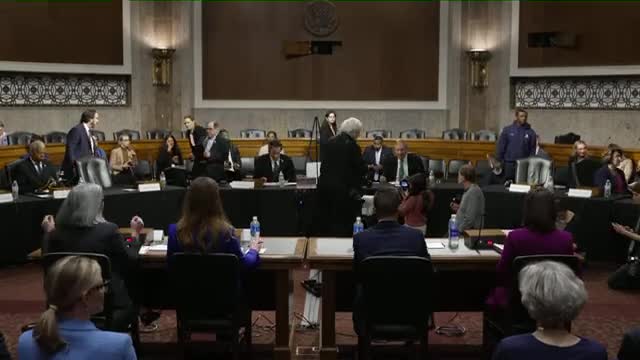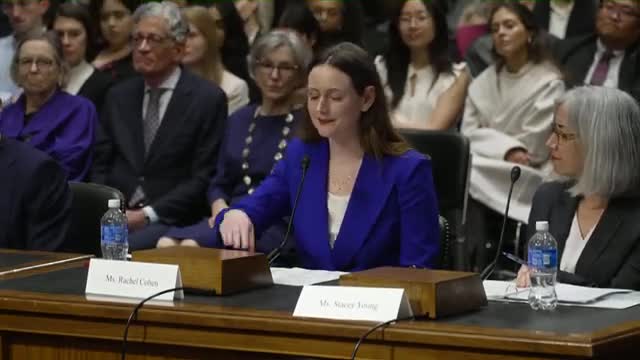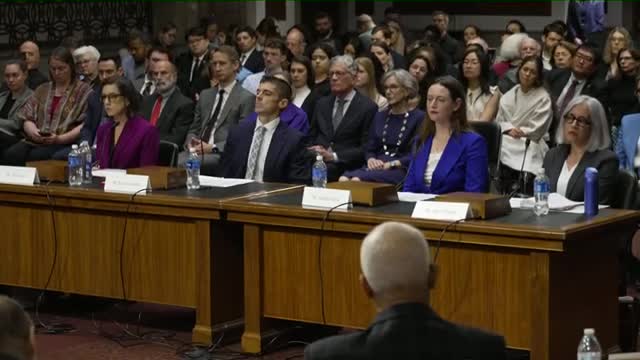Article not found
This article is no longer available. But don't worry—we've gathered other articles that discuss the same topic.

Former DOJ lawyers testify at bicameral hearing, say political loyalty is displacing rule of law

Former associates and witnesses say executive orders and threats pushed law firms to capitulate; some associates resigned

